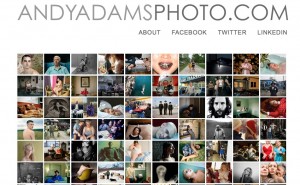If you’re an academic, a parent, a prospective university student in England or even — Godammit — a former Lib Dem voter, then Stefan Collini’s London Review of Books piece on Lord Browne’s attempt to re-engineer an entire higher education system is a must-read. He starts from an observation that many of us had already made — which was the curious way in which the entire subject of the report was portrayed in the media as being just about fees. Collini points out that, in a way, the fees issue is peripheral. What’s important is that the Report proposes
a far, far more fundamental change to the way universities are financed than is suggested by this concentration on income thresholds and repayment rates. Essentially, Browne is contending that we should no longer think of higher education as the provision of a public good, articulated through educational judgment and largely financed by public funds (in recent years supplemented by a relatively small fee element). Instead, we should think of it as a lightly regulated market in which consumer demand, in the form of student choice, is sovereign in determining what is offered by service providers (i.e. universities). The single most radical recommendation in the report, by quite a long way, is the almost complete withdrawal of the present annual block grant that government makes to universities to underwrite their teaching, currently around £3.9 billion. This is more than simply a ‘cut’, even a draconian one: it signals a redefinition of higher education and the retreat of the state from financial responsibility for it.
What Browne wants is
a system in which the universities are providers of services, students are the (rational) consumers of those services, and the state plays the role of the regulator. His premise is that ‘students are best placed to make the judgment about what they want to get from participating in higher education.’ His frequently repeated mantra is ‘student choice will drive up quality,’ and the measure of quality is ‘student satisfaction’. At the moment, he laments, ‘students do not have the opportunity to choose between institutions on the basis of price and value for money.’ Under his scheme, such value will be primarily judged by students in terms of ‘the employment returns from their courses’. Courses that lead to higher earnings will be able to charge higher fees.
Collini is a Professor of English, so it’s hardly surprising that he casts a beady eye on Browne’s use of the language. Consider the sentence in the report which asserts that “Students are best placed to make the judgment about what they want to get from participating in higher education.” “Looked at more closely”, writes Collini,
this statement reveals itself to be a vacuous tautology because of its reliance on the phrase “want to get”. By definition, individuals are privileged reporters on what they think they want. The sentence could only do the work the report requires of it if it said something more like: ‘Students are best placed to make the judgment about what they should get from participating in higher education.’ But this proposition is obviously false. Children may be best placed to judge what they want to get from the sweetshop, but they are not best placed to judge what they should get from their schooling. University students are, of course, no longer children, but nor are they simply rational consumers in a perfect market.
And then there is Brown’s touching faith in the market. “It is fascinating, and very revealing”, says Collini,
to see how Browne’s unreal confidence in the rationality of subjective consumer choice is matched by his lack of belief in reasoned argument and judgment. The sentence that immediately follows the vacuous one about students’ “wants” reads: “We have looked carefully at the scope to distribute funding by some objective metric of quality; but there is no robust way to do this and we doubt whether the choices of a central funding body should be put before those of students.” It is, first of all, striking that the only alternative envisaged to the random play of subjective consumer choice is an “objective metric of quality”, i.e. some purely quantitative indicator. And second, it is no less striking that instead of allowing that an informed judgment might be based on reasons, arguments and evidence, there are simply the ‘choices’ made by two groups, treated as though they are just two equivalent expressions of subjective preference. We can have the money for a national system of higher education distributed either in accordance with the tastes of 18-year-olds or in accordance with the tastes of a group of older people in London: there’s no other way to do it.
As Collini shows, the Browne report is an astonishingly vacuous document. What struck me most about it — speaking as an engineer — is the engineering mindset that it embodies. Browne owes his ascent in the university world to the patronage of Alec (now Lord) Broers, an engineer who presided over some strange developments in Cambridge university when he was its Vice-Chancellor and who often appeared to be completely mesmerised by Browne. Broers is a successful engineer but in most other respects always seemed to me to resemble Mr Magoo. His 2005 Reith Lectures (tellingly entitled “The Triumph of Technology”) were embarrassingly feeble. Most worryingly, he seemed completely blind to the significance of the humanities. And now, right on cue, comes his protege’s recommendation to cut all of the teaching grant for Arts, Humanities and Social Sciences in English universities. If the report is implemented, then only those who are rich, cultured or curious enough to shoulder the costs will study these subjects. And British society will be poorer as a result.
And, of course, everyone has been too polite to mention the fact that it was Engineer Browne who, as BP’s CEO, laid the foundations for the company’s disastrous foray into the US, and who then dug the pit for his own downfall by attempting to conceal the origins of a gay relationship. Why, one wonders, was such a booby entrusted with the fate of the British university system? For once, we cannot blame the Con-Dem coalition. The man who gave this particular clock to this particular monkey was Gordon Brown.





